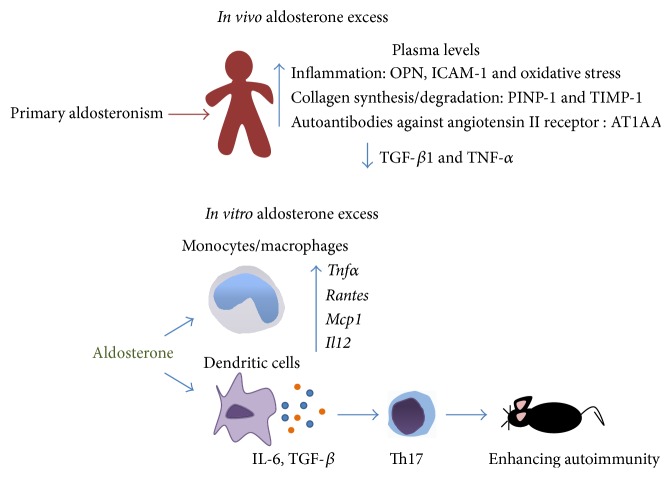Figure 3.
Aldosterone as proinflammatory stimulus. Available data links aldosterone excess with inflammatory phenotype. Clinical studies performed in patients with primary aldosteronism have demonstrated that aldosterone induces inflammatory and oxidative changes, whereas MR antagonism or controlling aldosterone levels contributes to return at homeostatic conditions. Similarly, in vitro experiments demonstrate that myeloid immune cells respond to aldosterone, inducing the expression and secretion of proinflammatory cytokines. This modulation of innate immune cells directly impacts the polarization of adaptive immune response toward Th17 phenotype.

